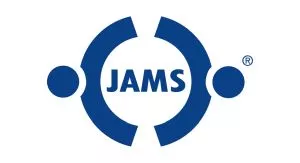How understanding conflict dynamics and harnessing professional assistance can unlock effective solutions
JAMS Pathways recently conducted a webinar that focused on tension in the workplace where we shared tips and techniques to manage and defuse discord.
The following are key takeaways and recurring themes from this hour-long session:
Introduction to Conflict Resolution
Conflict is an inevitable part of human interaction. Whether in personal relationships or professional settings, disagreements and differences of opinion are bound to occur. However, conflict is not inherently negative. When managed correctly, it can lead to growth, understanding, and improved relationships. The key lies in understanding the nature of conflict and mastering effective conflict resolution techniques.
The Nature of Conflict
Conflict arises from differences. It occurs when people disagree over their values, motivations, perceptions, ideas, or desires. Sometimes these differences appear trivial, but when a conflict triggers strong feelings, a deep personal need is often at the core. These needs can be a need to feel safe and secure, a need to feel respected and valued, or a need for greater closeness and intimacy.
Understanding Conflict Styles
People have different ways of dealing with conflict, often referred to as conflict styles. The Thomas-Kilmann Conflict Mode Instrument, a widely recognized tool in the field, identifies five conflict styles: competing, collaborating, compromising, avoiding, and accommodating. Understanding your conflict style and the styles of those around you can help in navigating disagreements effectively.
Techniques for Effective Conflict Resolution
Effective conflict resolution involves a variety of skills and techniques. Among the most important are active listening, empathy, and understanding the other person's perspective.
Active listening involves truly hearing and understanding what the other person is saying, rather than merely preparing your response. It requires patience, open-mindedness, and the willingness to see the situation from the other person's point of view.
Empathy, or the ability to understand and share the feelings of another, is also crucial in conflict resolution. By empathizing with the other person, you can better understand their needs and emotions, which can help in finding a resolution that satisfies both parties.
Understanding the other person's perspective involves recognizing their needs, interests, and values. Often, conflicts arise from unmet needs or incompatible interests. By identifying these underlying issues, you can address the root cause of the conflict rather than just the surface-level disagreement.
The Intersection of Mental Health and Conflict
Mental health conditions can significantly impact how individuals experience and handle conflict. Conditions such as ADHD, autism, and PTSD may affect a person's communication style, emotional regulation, and conflict resolution strategies. Understanding and accommodating these differences is crucial in effective conflict resolution. It's important to approach conflicts with empathy and patience, particularly when mental health conditions are involved.
Navigating Workplace Conflict
Workplace conflict can arise from a variety of factors, including differences in personality, communication styles, and expectations. Such conflicts can lead to stress, decreased productivity, and a negative work environment if not properly managed.
Effective communication is key in managing workplace conflict. This involves expressing your needs and concerns clearly and respectfully, listening to and understanding the other person's perspective, and working together to find a solution that meets both parties' needs.
Conclusion: Seeking Help in Conflict Resolution
Conflict resolution can be complex, and it's okay to seek help when needed. Professionals in the field of conflict resolution can provide valuable guidance and assistance. They can help you understand your conflict style, develop effective conflict resolution skills, and navigate challenging conflicts.
Remember, conflict is not inherently negative. When managed correctly, it can lead to growth, understanding, and improved relationships. So, don't shy away from conflict. Instead, embrace it as an opportunity for growth and learning.
The content of this article is intended to provide a general guide to the subject matter. Specialist advice should be sought about your specific circumstances.

